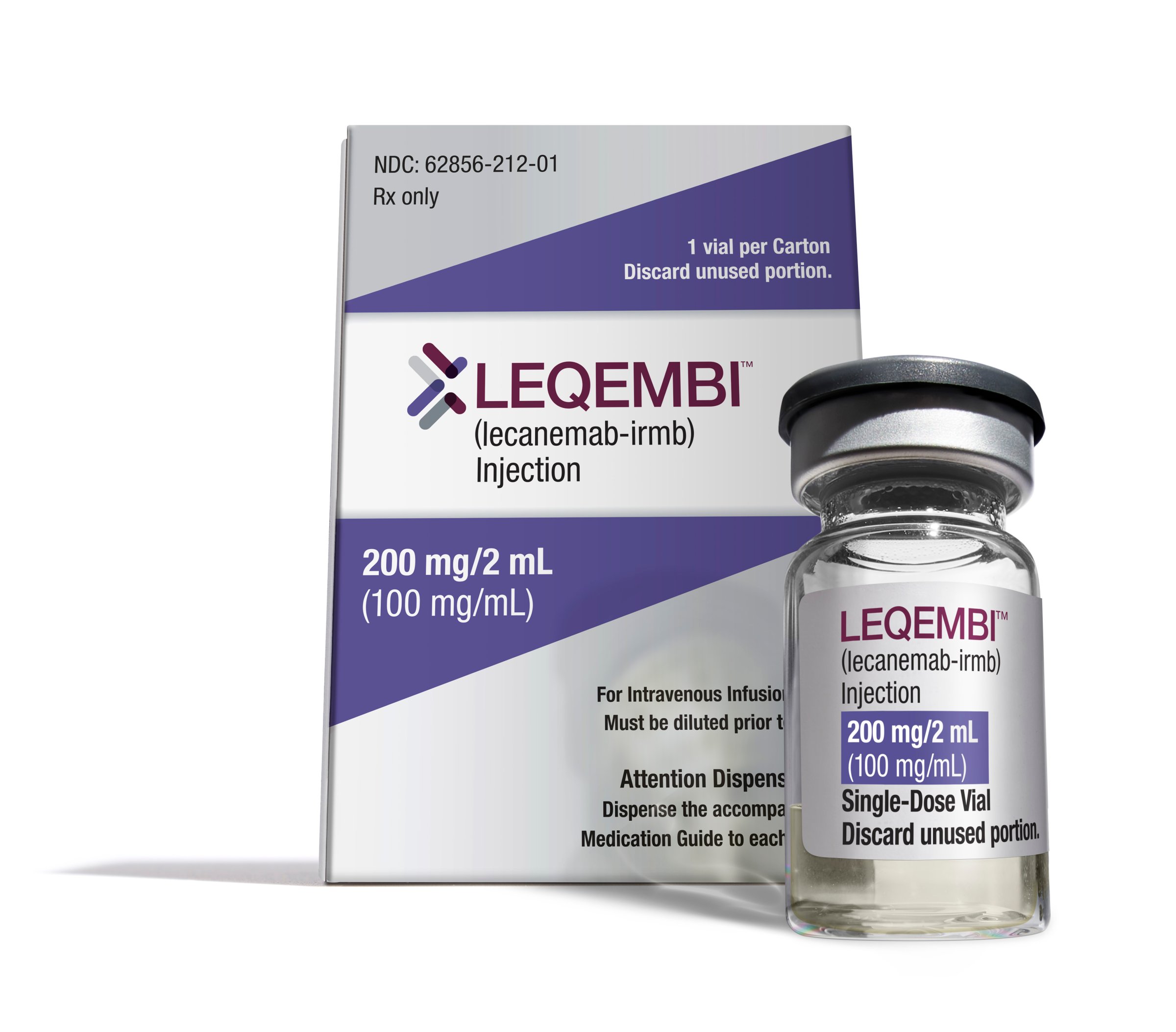
Alzheimer’s patients and their families welcomed the news on Jan. 6 that the U.S. Food and Drug Administration (FDA) approved a new treatment for Alzheimer’s disease. Lecanemab, marketed as Leqembi, is made by Eisai and Biogen for people in the early stages of the disease. The FDA granted lecanemab accelerated approval based on early phase testing results, and it’s now reviewing the companies’ completed data for consideration of traditional, full approval. It’s only the second drug approved to treat Alzheimer’s, not just address symptoms.
Doctors can now prescribe the medication, but many patients won’t be able to afford it. Eisai said the drug, which is given every two weeks via an IV infusion at a doctor’s office or clinic, will cost about $26,500 a year. While it’s not clear yet how long people will need to take the drug, Ivan Cheung, Eisai Inc.’s CEO, estimated that most people might need to take it at least three years.
Here’s what to know about why lecanemab will be out of reach for most patients.
Medicare won’t cover lecanemab
The Centers for Medicare and Medicaid Services (CMS) does not cover medications granted accelerated—not full—approval in lecanemab’s category: treatments that target a protein called amyloid in the brains of Alzheimer’s patients. That decision goes back to the drug that preceded lecanemab, called aducanumab (brand name: Aduhelm), which the FDA approved in 2021. The FDA’s controversial approval was based on the results of two studies: one that showed patients benefited from the drug compared to those receiving placebo, and another that showed no difference between the two groups. The FDA decided to approve the drug because there were no treatments for Alzheimer’s, and aducanumab would address the urgent and unmet need to give patients something that they assumed, based on the data, would slow down its progression.
Because of the conflicting data, however, CMS decided not to reimburse for aducanumab unless people were enrolled in continuing clinical trials to solidify the drug’s effectiveness. The policy also applied to all future therapies that used the same strategy of tackling amyloid in the brain—such as lecanemab, which targets a different form of the same protein. This means patients who aren’t participating in a clinical trial of the drug will have to foot the bill. Private insurance companies generally follows CMS’s lead.
Will Medicare change its policy and start reimbursing for lecanemab?
CMS said it would consider changing its policy when the complete set of data on lecanemab, including the results from the phase 3 studies, were submitted to the FDA. Eisai provided that data to the FDA on the same day it received accelerated approval. The phase 3 results were also published in the New England Journal of Medicine on Jan. 5. “Every day we cut the timeline to get traditional approval is one day closer to lifting the restrictions to access for Medicare beneficiaries,” says Cheung.
In a statement after lecanemab’s approval, CMS administrator Chiquita Brooks-LaSure said, “CMS is examining available information and may reconsider its current coverage based on this review.”
What Medicare’s policy means for patients
For now, patients will have to wait until the FDA issues a traditional approval for lecanemab in order to receive reimbursement for the drug. That could be costly in more than just financial ways. Because lecanemab is indicated specifically for people in the earliest stages of mild Alzheimer’s-related dementia, waiting additional months could make many people ineligible to benefit from the treatment because they will have progressed to more advances stages of the disease, beyond the reach of lecanemab’s demonstrated effectiveness.
While the complete data sets on lecanemab’s safety and effectiveness are now available for doctors to consider, “what is missing is access,” says Maria Carrillo, chief scientific officer of the Alzheimer’s Association. “Not having access based on the accelerated approval is a detriment to our patient community.” The Association estimates that each day, more than 2,000 people move from mild dementia to more advanced Alzheimer’s, which lessens their chances of being able to benefit from lecanemab. CMS’s policy could potentially deny thousands of people the chance to slow their cognitive decline and push back the more severe effects of their disease. “That’s not acceptable, and unprecedented,” says Carrillo. “We feel it’s wrong.”
More Must-Reads From TIME
- The 100 Most Influential People of 2024
- Coco Gauff Is Playing for Herself Now
- Scenes From Pro-Palestinian Encampments Across U.S. Universities
- 6 Compliments That Land Every Time
- If You're Dating Right Now , You're Brave: Column
- The AI That Could Heal a Divided Internet
- Fallout Is a Brilliant Model for the Future of Video Game Adaptations
- Want Weekly Recs on What to Watch, Read, and More? Sign Up for Worth Your Time
Contact us at letters@time.com